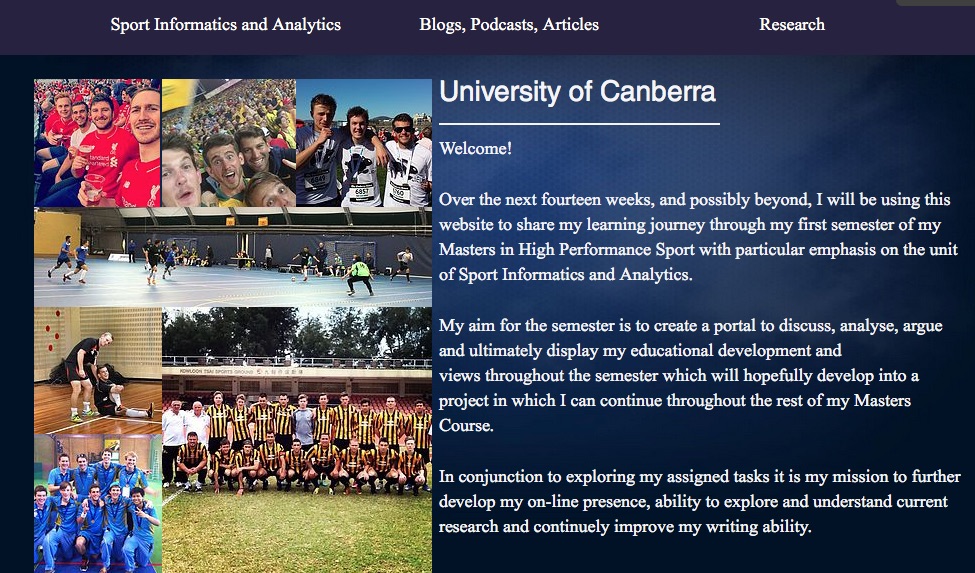Introduction
Ontario’s Distance Education and Training Network has published a review of how Massive Open Online Courses (MOOCs) are influencing teaching and learning.
One of the impacts the paper identifies is the support for the development of learning portfolios. Stephen Downes’ review of the paper draws attention to this quote:
MOOCs showcase the developments which online learning and other innovations have been encouraging for some time: they are not so much initiating these developments as acting as an accelerant for them.
The Ontario paper appeared just as students in the Master in High Performance Sport at the University of Canberra were submitting their first round of ePortfolios for formative assessment in the Sport Informatics and Analytics unit.
ePortfolios and Personal Learning
The students submitting their ePortfolios at the University Canberra are following an OERu course in Sport Informatics and Analytics. This has evolved from an open online course, #UCSIA15, that ran for four weeks in 2015.
Information about the 2016 OERu course includes this page on ePortfolios as assessment. There is a background resource to support them as well.
The 2016 cohort of students in Canberra is guided by Jocelyn Mara. They are being encouraged to embrace the messiness of personal learning and explore how reflection might act as a catalyst for their own learning and understanding.
This messiness includes fallibility in constructing the ePortfolio. We have encouraged our students to choose a platform that suits them from a range of choices that includes the University’s instance of Mahara.
The Class of 2016
There are eight students in the 2016 course.
Cheyanne Girvan has chosen WordPress as a platform

Michael Sydney is using Wix

Nathan McConchie has decided upon Mahara’s Foliospaces.
Rob Palmer, Chris McPhail, Anthony Pierobon, and Adam Wright are using Mahara.




Annie Gallacher has chosen one of my favourite platforms, Google Sites.

Learning is what we do to ourselves
I am delighted with the diversity of these ePortfolios. They are windows into the thought worlds of each student and offer opportunities to engage in conversations about learning with each other.
The students have a second formative assessment point in this course and at the end of the semester will present their ePortfolios for summative assessment. Jocelyn’s role as their guide, and meddler, is to nourish these explorations in a course that is designed as a non-linear, self-directed learning journey.
I am hopeful that their engagement with this approach will transform their experiences as learners. I do find the process of creating an ePortfolio disturbing in the best sense of the word … that is, an invitation to be an agent in one’s own learning.
Photo Credit
Bondi Icebergs (Winam, CC BY-NC-ND 2.0)







